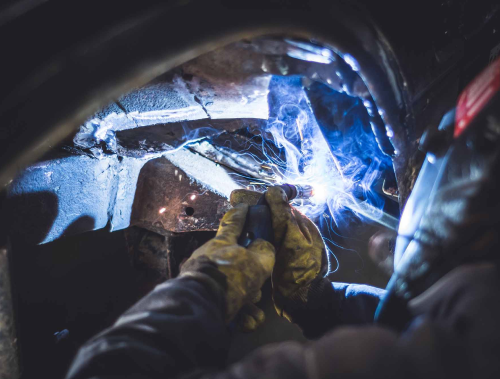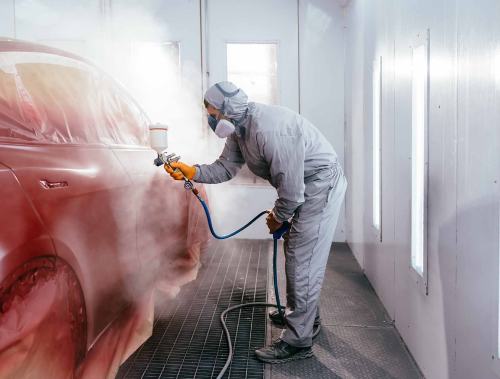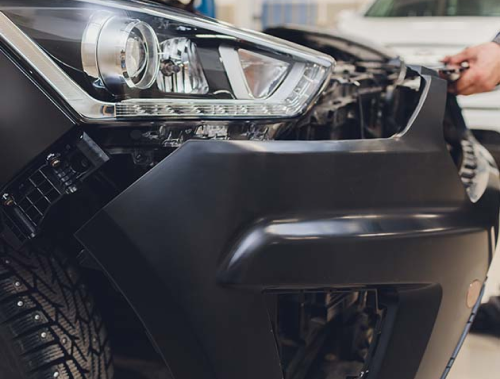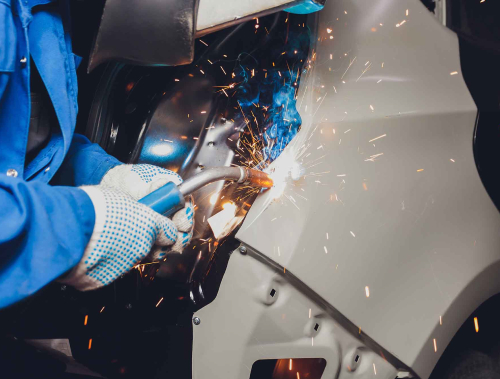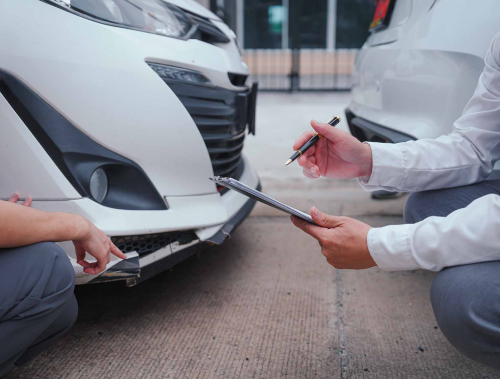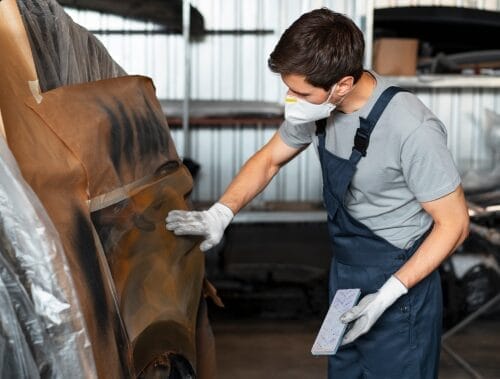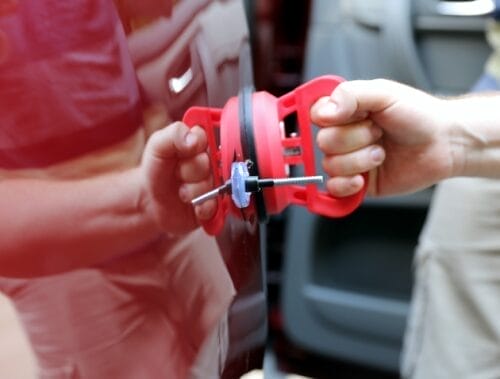Navigating the aftermath of a car collision can be challenging, especially when it comes to selecting the right auto body repair shop. For Maryland residents, understanding the key factors involved in choosing a reliable repair shop is crucial to ensuring that your vehicle is restored to its original condition. This guide is designed to help you make informed decisions, from understanding your legal rights to evaluating repair estimates.
Understanding Your Rights in Maryland
In Maryland, you have specific rights when it comes to choosing where your car is repaired after an accident. It’s important to know these rights to avoid unnecessary influence from insurance companies and to ensure that you get the best possible service.
Right to Choose Your Repair Shop
- Maryland Laws: Maryland law gives you the legal right to choose your own auto body repair shop, regardless of any recommendations from your insurance company. This means that you have the freedom to select a shop that you trust, based on factors like reputation, certifications, and customer service, rather than feeling pressured to use a shop preferred by your insurer.
- Insurance Company Influence: Insurance companies may suggest or pressure you to use their preferred repair shops, often referred to as “direct repair programs” (DRPs). While these shops might offer convenience or potentially lower costs, it’s important to make an independent choice. The preferred shops may prioritize cost over quality, so it’s essential to select a repair shop that aligns with your standards for quality repairs and customer service.
Key Factors to Consider When Choosing a Repair Shop
Selecting the right auto body repair shop involves considering several important factors, such as certifications, technician expertise, reputation, and insurance considerations.
Certifications and Experience
- Industry Certifications: When choosing a repair shop, look for industry certifications like ASE (Automotive Service Excellence) and I-CAR (Inter-Industry Conference on Auto Collision Repair). These certifications indicate that the shop meets high industry standards and that its technicians are well-trained and knowledgeable about the latest repair techniques.
- Technician Expertise: Beyond certifications, consider the experience level of the shop’s technicians. Shops with a history of handling collision repairs and specific vehicle makes are more likely to deliver quality work. Experienced technicians are better equipped to identify and fix complex issues, ensuring your vehicle is restored to its pre-accident condition.
Reputation and Customer Reviews
- Online Reviews: Online reviews are a valuable resource for assessing a repair shop’s reputation. Check platforms like Google, Yelp, and the Better Business Bureau to see what past customers have to say about their experiences. Consistent positive feedback about the quality of repairs, customer service, and timeliness is a good indicator of a reputable shop.
- Word-of-Mouth Recommendations: In addition to online reviews, seek recommendations from people you trust. Friends, family, and colleagues who have had positive experiences with local repair shops can provide insights that might not be available online. Personal recommendations often give you a clearer picture of what to expect in terms of service quality and reliability.
Insurance Considerations
- Understanding Your Coverage: Before committing to a repair shop, review your insurance policy to understand what’s covered. Knowing your policy details, such as deductibles and limits, will help you avoid unexpected out-of-pocket expenses. Some policies may cover OEM (Original Equipment Manufacturer) parts, while others might only cover aftermarket parts, which can affect the quality of repairs.
- Preferred Shops vs. Independent Shops: Insurance companies often have preferred repair shops, which can offer certain advantages like streamlined claims processing and possibly lower repair costs. However, independent shops might provide more personalized service and a greater focus on quality. Consider the pros and cons of each option based on your needs and priorities.
The Process of Getting Estimates
Obtaining and evaluating repair estimates is a crucial step in the process of choosing the right auto body shop. It ensures that you receive fair pricing and understand the scope of the repairs.
Importance of Multiple Estimates
- Cost Comparison: Getting multiple estimates from different repair shops allows you to compare costs and services. This helps you avoid overpaying and ensures that you receive fair pricing for the repairs needed. It also gives you leverage in negotiating with your insurance company if necessary.
- Service Transparency: Ask each shop for a detailed written estimate that breaks down labor, parts, and additional fees. A transparent estimate should clearly outline what’s included in the repair process, so there are no surprises later on. Make sure to clarify any aspects of the estimate that you don’t understand before making a decision.
Evaluating the Estimates
- Understanding the Breakdown: When comparing estimates, pay close attention to the details. Look at the quality of parts being used—whether they are OEM or aftermarket—and the labor charges. Higher estimates might include better quality parts or more thorough repair work, so consider what you’re getting for the price.
- Negotiating with Shops: If there are discrepancies in pricing between different estimates, or if you have concerns about any part of the estimate, don’t hesitate to negotiate with the shop. They may be willing to match a competitor’s price or offer a discount if you express your concerns about cost.
Visiting and Assessing Repair Shops
Once you’ve narrowed down your options, visiting the repair shops in person is a crucial step. This visit will help you assess the environment and professionalism of the shop, ensuring that you feel confident in their ability to repair your vehicle properly.
Shop Environment and Professionalism
- Cleanliness and Organization: The cleanliness and organization of a repair shop can be telling indicators of how the business is run. A well-kept shop often reflects attention to detail and pride in workmanship. When visiting, take note of whether the shop is tidy and whether tools and parts are neatly stored. A disorganized or cluttered shop might suggest a lack of professionalism or care in their work.
- Customer Service: How the staff interacts with you during your visit is another important factor. Are they friendly, helpful, and willing to answer all your questions? Transparent communication is key to a positive experience. The staff should be able to explain the repair process in terms you understand, provide clear information about costs and timelines, and make you feel comfortable with their level of expertise. A shop that prioritizes customer service is more likely to ensure that you’re satisfied with the repair outcome.
Repair Guarantees and Warranties
Understanding the guarantees and warranties offered by a repair shop is critical to protecting your investment in your vehicle’s repairs.
- Warranty Policies: Ask about the shop’s warranty on both parts and labor. A strong warranty policy indicates that the shop stands behind its work. Make sure to get the warranty details in writing, including what is covered, for how long, and any conditions that might void the warranty. This will give you peace of mind knowing that if something goes wrong with the repair, the shop will take responsibility.
- Post-Repair Support: Inquire about any post-repair services and support the shop offers. Some shops may provide follow-up inspections or adjustments to ensure that the repairs are holding up well. This kind of support demonstrates a commitment to customer satisfaction and can be invaluable if any issues arise after the initial repair.
Finalizing Your Decision
After visiting shops and gathering all necessary information, it’s time to make your final decision. This step involves carefully weighing your options and ensuring that all your questions are answered before proceeding.
Making an Informed Choice
- Weighing Your Options: Before making your final decision, take a moment to review all the factors you’ve considered—certifications, reputation, repair estimates, warranties, and your overall impression of the shop during your visit. These elements will help you choose a shop that not only meets your technical needs but also makes you feel confident in their ability to handle your repair with care and professionalism.
Final Questions
Before committing to a repair shop, ask a few final questions to ensure everything is clear. Key questions to consider include:
- What is the expected timeline for the repairs?
- What payment options are available, and when is payment due?
- Will OEM (Original Equipment Manufacturer) parts be used, or will aftermarket parts be considered?
- Are there any potential additional costs not included in the estimate?
Communicating with Your Insurance Company
Once you’ve chosen a repair shop, it’s important to communicate your decision to your insurance company to ensure that everything is covered under your policy.
- Providing Your Choice: Notify your insurance company about the repair shop you’ve selected. Even if it’s not a shop they recommended, they should still honor your decision as long as the shop meets their criteria for coverage. Ensure that all necessary approvals are obtained before the repairs begin.
- Documentation and Claims: Keep detailed records of all communications with your insurance company, the repair estimates, and any documentation provided by the repair shop. This includes photos of the damage, written estimates, and the final repair bill. These records are essential for ensuring that your insurance claim is processed smoothly and that you have proof of all work performed on your vehicle.
Conclusion
Choosing an auto body repair shop after a car collision in Maryland requires careful consideration of several factors. By understanding your rights, obtaining multiple estimates, visiting potential shops, and thoroughly evaluating your options, you can make an informed decision that ensures your vehicle is repaired to the highest standards. Remember to communicate clearly with your insurance company and keep meticulous records throughout the process. By following these steps, you can confidently navigate the repair process and get back on the road with peace of mind.

